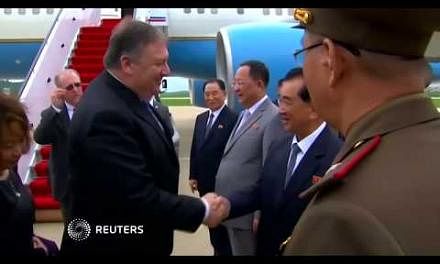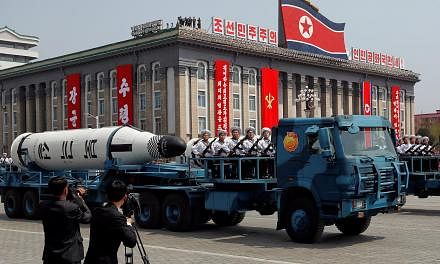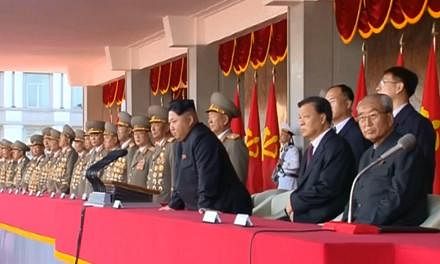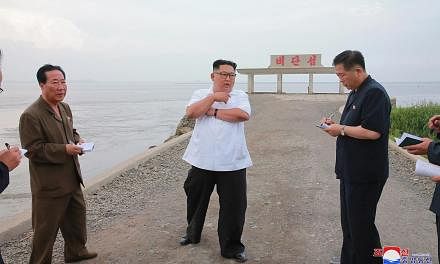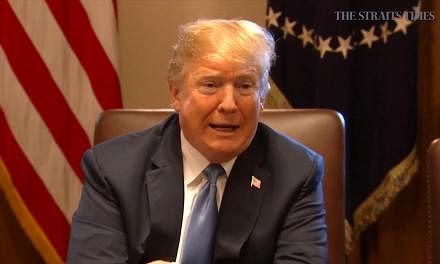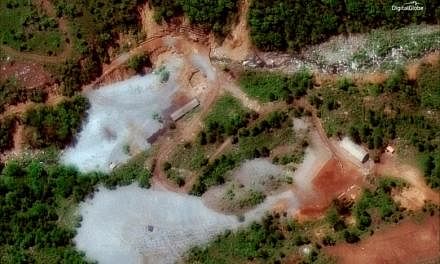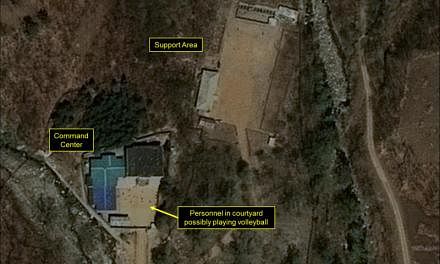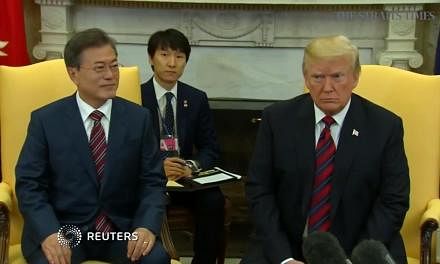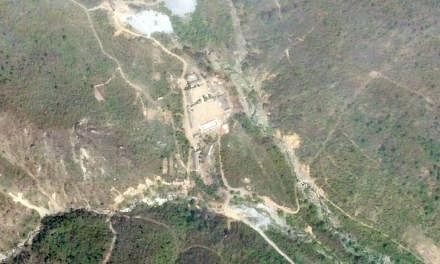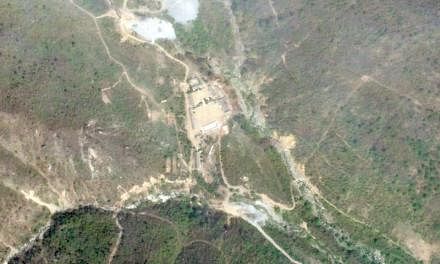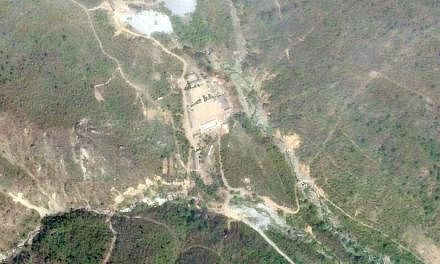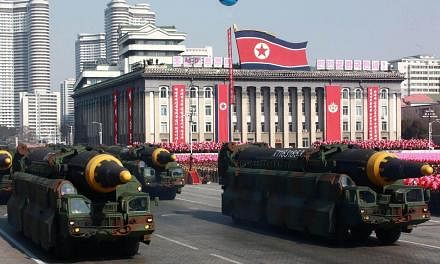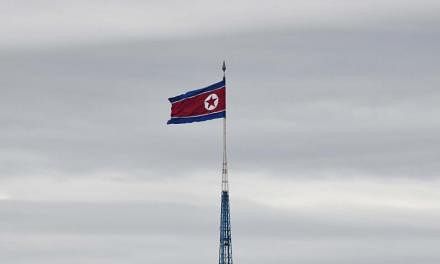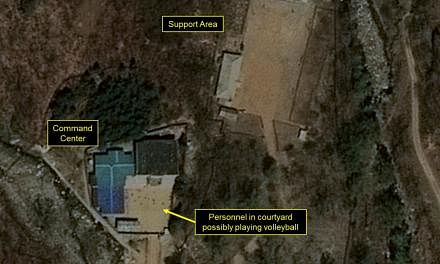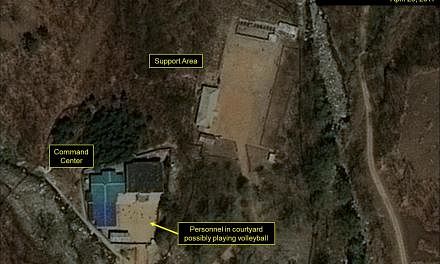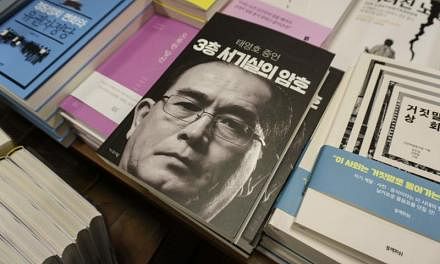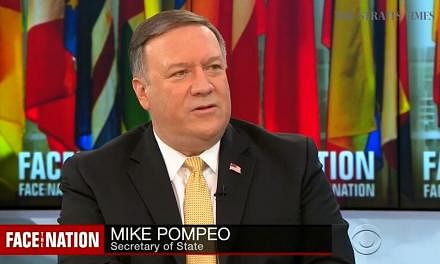YANJI, China - Beijing is said to have instructed its state banks to start suspending transactions through accounts held by North Koreans, potentially making trade between the two countries more difficult.
Branch offices of at least three major state banks - Bank of China, China Construction Bank, and Agricultural Bank of China - in the north-eastern border city of Yanji have banned North Koreans from opening accounts, Tokyo-based Kyodo News reported, citing sources familiar with the situation.
Customers from North Korea, however, can still withdraw money from their existing accounts, as the banks have not frozen them, said Kyodo News. But they can no longer make deposits or send remittances.
"This is being influenced by international sanctions against North Korea," an employee of one bank said, as quoted by Kyodo News.
The bank restrictions come as the United States is pushing for the United Nations Security Council to vote on Monday (Sept 11) on fresh sanctions against North Korea.
The US has circulated a draft resolution that would, aside from barring crude oil shipments to North Korea, ban the nation's exports of textiles and prohibit employment of its guest workers by other countries, according to a diplomat at the world body.
The proposal, which also calls for freezing the assets of the North's leader Kim Jong Un, has been sent to the 15 members of the Security Council, the diplomat said.
North Korea detonated its sixth and most powerful nuclear bomb on Sept 3, which it said was a hydrogen device.
South Korea has detected moves that indicate the North may soon launch another intercontinental ballistic missile.
The latest bank restrictions by China are also said to have been applied in Liaoning Province, the main region of trade between China and North Korea, Kyodo News reported. This suggested that China may have become more serious about reining in North Korea's nuclear ambitions.
The new banking rules could also help major Chinese banks avoid being hit by sanctions imposed by the US, according to Kyodo News.
One US Republican congressman had called out Bank of China as a potential sanction target earlier this month (September), and Treasury Secretary Steven Mnuchin said punishing specific entities is an option, Bloomberg reported.
Representative Peter King of New York wrote in a Sept 3 message on Twitter that if China or Russia vetoed UN's oil sanctions on North Korea, "US must sanction (anyone) doing business with NK (North Korea), including Bank of China".
China is North Korea's major oil supplier and accounts for about 90 per cent of North Korea's official trade.
The Trump administration has already targeted Chinese banks. In late June, the Treasury Department imposed sanctions against the Bank of Dandong, severing it from the US financial system as it accused the bank of laundering North Korean cash, Agence France-Presse reported.
Chinese banks are especially vulnerable to sanctions because they had US$144 billion of assets in the US at the end of December, according to data from the US Federal Reserve. Most of those assets are held by Bank of China and the Industrial and Commercial Bank of China.

